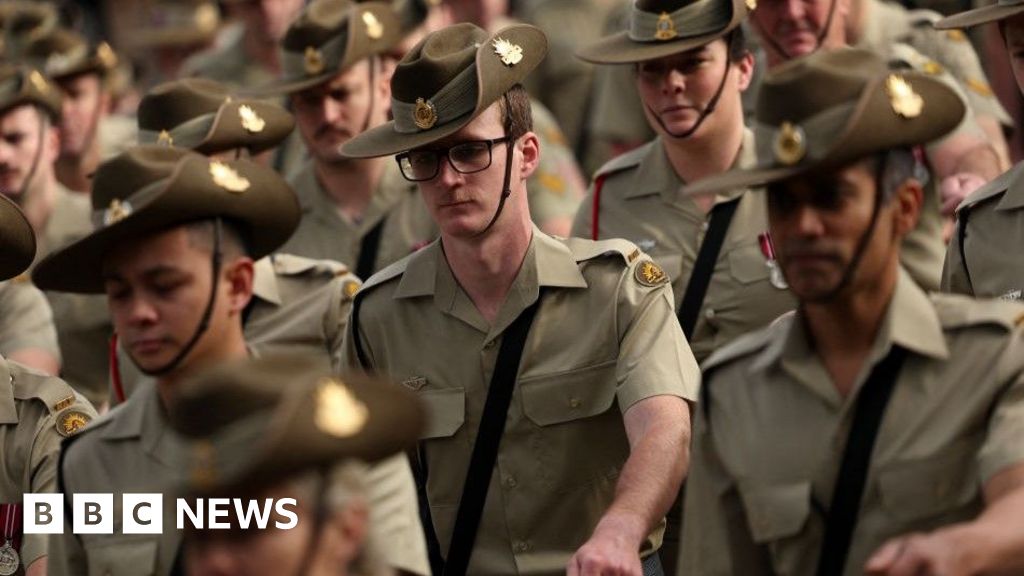The Australian Defence Force (ADF) will allow recruits from a handful of foreign countries, including the UK, to help grow its ranks.
Australia has been struggling with recruitment shortfalls, as it seeks to beef up its armed forces in the face of what it says are growing regional threats.
From July, New Zealand nationals who are permanent residents of Australia can apply to join, and from January that will expand to recruits from the UK, US and Canada.
Minister for Defence Richard Marles said the changes to eligibility requirements were “essential to meet the nation’s security challenges through the next decade and beyond”.
Australia and New Zealand already have a longstanding “Anzac bond”, he said, pointing to their history fighting side-by-side at Gallipoli in World War One.
And Australia has in recent years sought to boost ties with the UK and the US, in 2021 signing the Aukus pact – a far-reaching defence and security alliance aimed at confronting Chinese military expansion in the Indo-Pacific region.
Canberra has repeatedly expressed growing concerns about Beijing’s actions, and a strategic review of the ADF released last year pointed to the “growth and retention of a highly skilled defence workforce” as a key measure to counter them.
The previous government in 2020 announced A$38bn (£19.8bn; $25.4) of funding to increase the number of uniformed personnel by 30% within two decades.
But Defence Personnel Minister Matt Keogh says low levels of unemployment in Australia has made it “very difficult” to recruit – with recent government figures estimating the ADF is already short about 5000 people.
While Australia has a history of accepting small numbers of military transfers from a few allied nations, the new eligibility rules are aimed at significantly widening the pool of potential recruits.
As well as meeting ADF entry standards and security requirements, those wishing to join must have been permanent residents of Australia for over a year and must not have served in a foreign military in the previous two years.
They must also be eligible for Australian citizenship – something they will be offered and “expected” to take up after 90 days of service, says Mr Keogh.
The opposition spokesman for foreign affairs said they were not against the plan, but that the government’s defence strategy was undermining confidence and morale in the defence force.
“We want to see, ideally, Australians wearing the Australian uniform,” Simon Birmingham told Sky News Australia.
Australia, the UK, US, Canada and New Zealand also work closely together in intelligence sharing under an alliance called the Five Eyes.

